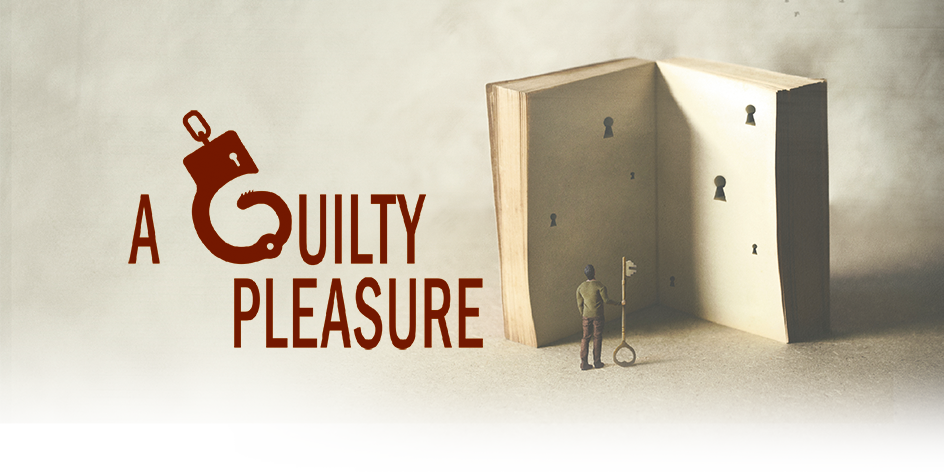

It’s Friday night. The children are already asleep. You change into your most comfortable pyjamas and curl up in your blanket, with pillows piled high behind your back, and a mug of hot chocolate and a plate of cookies on your bedside table. It is pouring outside, with thunder faintly rumbling in the distance. Just the right kind of day to pick up a book. What do you have in mind? How about a murder mystery?
Ever since Edgar Allan Poe penned the first modern detective story “The Murders in the Rue Morgue” and introduced the enigmatic and eccentric C. Auguste Dupin in 1841, mysteries have captivated readers for centuries and become one of the most popular genres of fiction worldwide.
Mysteries, however, are sometimes referred to as a guilty pleasure, implying that they are a lesser form of literature. While guilt and pleasure are subjective feelings that leave little room for a conclusive discussion, things like storytelling skill and writing style carry a certain extent of objectivity. Many brilliant mystery writers strive to provide readers with memorable characters and stellar prose. Tana French’s Dublin Murder Squad series, for instance, are full of exquisitely telling details, emotional tension and thrills, set against a moody Irish atmosphere so richly described that you can almost visualise yourself being there. Like all other books, there are varying degrees of literary merit among mystery novels. It is a gross generalisation to assume that all books in a genre are artistically unsophisticated just because some of them are crude and formulaic.
Reading elitism is nothing new. Novels were deemed guilty pleasures in the 18th century. In Northanger Abbey, Jane Austen writes an impassioned defence of novels, which were then viewed with the same stigma that is associated with mystery fiction these days. “Although our productions have afforded more extensive and unaffected pleasure than those of any other literary corporation in the world,” writes Austen, “no species of composition has been so much decried.” She claims that in novels “the most thorough knowledge of human nature, the happiest delineation of its varieties, the liveliest effusions of wit and humour, are conveyed to the world in the best-chosen language”. Indeed, it is only in hindsight that some great works have become lauded pieces of classic literature. In their times, they were simply enjoyed as light reading.
There is nothing more enjoyable than bingeing on a good mystery. Mysteries quench our thirst for the very essence of human nature, though more on the darker side. At its best, mystery fiction offers unique insights into the psychological makeup and motivations of characters who are downright evil, or at least morally ambiguous. And let’s not forget about the protagonists who are determined to redress the wrong and uphold the right. From Raymond Chandler’s Philip Marlowe to Kate Atkinson’s Jackson Brodie, mysteries have a long tradition of featuring flawed and complex protagonists who struggle with their personal demons while trying to solve their cases. Their haunted pasts, addictions or obsessions make them relatable, elevating the stories to more than just crime-solving puzzles. Readers are left with a better understanding of the vagaries of the human heart and the inner struggles we all face, in addition to the adrenaline rush and the vicarious excitement of joining the chase to catch a killer.
The promise of a glimpse into the depth of human nature is alluring, but there is something more to mystery novels that is irresistibly engaging and incredibly hard to replicate in any other genre. As a reader, you are invited to put on your own detective hat, piece together clues and attempt to uncover the truth alongside the protagonist. With every turned page, you are led down a circuitous path amid a cloud of mist. At some point, you are tricked by false leads, red herrings and last-minute alibis, all of which heighten the suspense surrounding the mystery. To have your deductions confirmed is fulfilling, but to be surprised is all the more fun. The intellectual challenge, combined with the intricate plot and clever twists and turns, fuels your imagination and has you on the edge of your seat until the very end.
It’s way past midnight. You keep promising yourself, “Just one more chapter, and then I’ll go to sleep.” Yet, the urge for closure keeps you from putting the book down. When the loose ends are tied up, conflict resolved, villains vanquished and justice served, you come away feeling satisfied—the way you feel after that last piece of cookie. It is perhaps only now that you feel guilty … considering all the other, arguably more important, tasks you could have accomplished during the time that you have spent with the novel. But the pleasure is well worth it.











